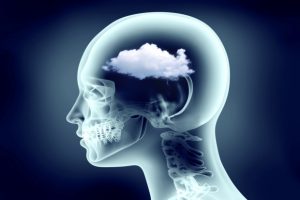
Brain fog can be associated with lifestyle factors or can develop as a side effect of a medical condition or medication. Determining the underlying cause of your brain fog is the first step towards treating it and thinking clearly once again. Brain fog has been commonly associated with fibromyalgia and menopause, for example.
What causes brain fog?
Lack of sleep: Sleep is a restorative part of a person’s day, especially for the brain. A good night’s sleep gives the brain an opportunity to reorganize itself. When sleep is interrupted you may find that your ability to think straight becomes hindered. Although this can be restored by improving your sleep, or maybe even having a cup of coffee, chronic poor sleep should be addressed in order to improve and maintain proper brain function.
Neurological disorders: Certain neurological conditions have been linked to brain fog, including fibromyalgia, lupus, chronic fatigue syndrome, and multiple sclerosis.
Stress: Stress is known for its negative impact on the overall health, particularly on the brain. Chronic stress can lead to brain fatigue, thus contributing to brain fog. Stress-induced brain fog is often triggered by an extreme situation such as passing of a loved one. If brain fog is a result of everyday stress, there may be another underlying cause.
Menopause: Changes in hormones that occur in menopause can bring about brain fog. As hormones become regulated, brain fog symptoms tend to disappear.
Diabetes: Glucose is one of the primary sources of energy for the brain. In diabetes, glucose levels can fluctuate greatly, which can contribute to brain fog as the brain no longer receives its energy fuel.
Nutritional deficiencies: The brain requires proper nutrition in order to function properly. If you suffer from nutritional deficiencies, then the brain is starved for essential nutrients which can result in brain fog. It’s important then that you eat a wide variety of foods that contain different nutrients to ensure your brain is well fed.
Brain fog symptoms
Brain fog can affect a person in many different ways and no two patients with brain fog may experience it the same way. Symptoms of brain fog include:
- Communication difficulties: Holding a conversation may become difficult because you can’t find the right words to say, even written communication may be a challenge.
- Concentration problems: You may have difficulties following along or concentrating on a task at hand, being easily distracted.
- Decreased productivity: When thinking and concentration are impaired, the ability to carry out tasks is affected, too. You become less effective at completing tasks.
- Decision-making: You may find it difficult to weigh the pros and cons of a scenario, so it may be difficult to make a decision. You may become indecisive or passive.
- Depression: With brain fog, your mood may be affected as well, which may onset depressive symptoms.
- Disorganized thinking: Thinking and disorganized thoughts are a common symptom of brain fog. Conversations can become confusing as a result.
- Distraction: As mentioned above, because of a lack of concentration, there is a greater risk of distraction.
- Drowsiness: When the brain is fatigued, a person may feel fatigued overall, which can lead to drowsiness.
- Errors: There is a greater risk of errors in brain fog.
- Fatigue: Brain fog and fatigue often go hand in hand, especially when lack of sleep is the culprit.
- Impaired cognition: This can range from minor to severe.
- Inability to think critically
- Inattentiveness
- Learning difficulties
- Lethargy
- Low energy
- Memory problems: Either short-term or even long-term forgetfulness.
- Decline in social activity
Related: Brain fog in menopause is real, more evidence uncovered
Preventing brain fog
The first step to prevent brain fog is to ensure you are getting adequate sleep and that you are managing your stress levels. If you have diabetes, you will want to work on monitoring and regulating your glucose levels to ensure that it does not become a contributing factor for brain fog.
If you have any type of infection that, too, can contribute to brain fog, so see your doctor for a proper treatment. Additionally, if your brain fog is a side effect of medications you are on, speak to your doctor about other options that do not cause such side effect.
If you are undergoing menopause, speak to your doctor about treatments that can help reduce hormone fluctuations to prevent brain fog.
Always ensure you are eating a healthy balanced diet to prevent any nutritional deficiencies and exercise regularly as it helps maintain a sharp mind.